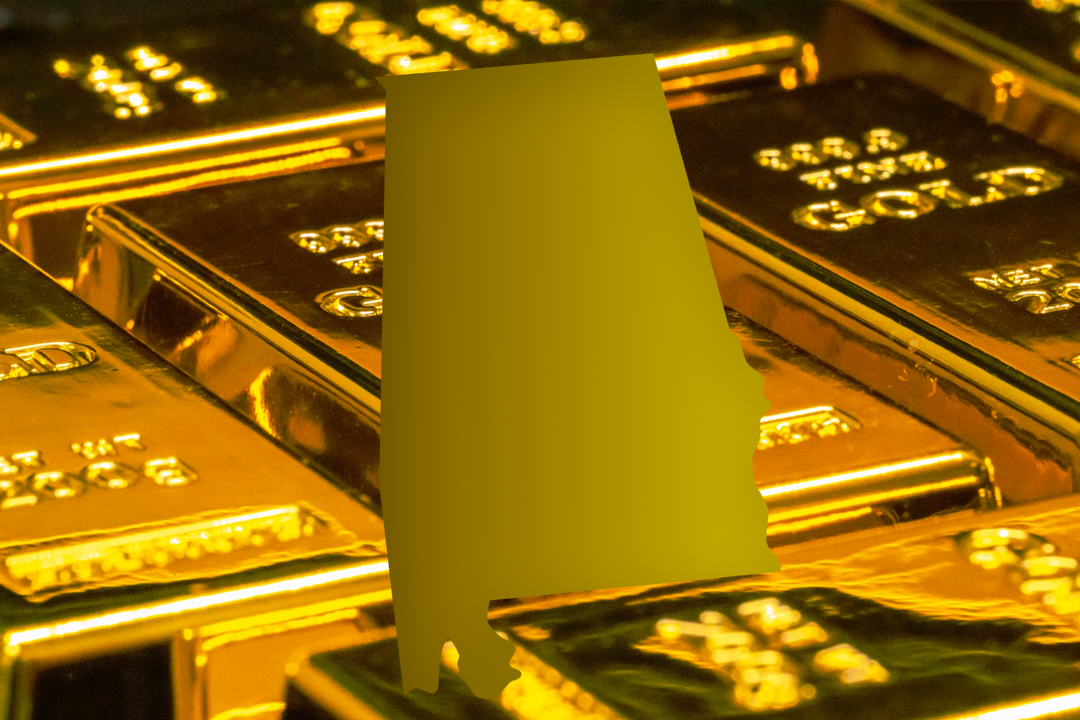MONTGOMERY — A bill to end the capital gains tax on gold, silver and other precious metals passed the Alabama House of Representatives on Tuesday and is now heading to Gov. Kay Ivey's desk for her signature.
Senate Bill 297 (SB297) by State Sen. Tim Melson (R-Florence) would exclude from the gross income of individuals the net capital gain derived from the exchange of precious metal bullion. It also does not allow a deduction for net capital losses sustained from selling precious metals.
State Rep. Jamie Kiel (R-Russelville) presented the bill before the House, reiterating that the bill simply reinforces gold and other precious metals as legal currency.
"If you've got $100 in your pocket and the value of that $100 goes up, at the end of the year, you don't pay capital gain tax on the gain and value of that $100. And you also don't write that off on your taxes if the dollar devalues.
"In this instance, you would not pay capital gains tax if the value goes up; you would also not write off the value if it goes down. So, if you were to have gold and it loses value, you would not write that off on your taxes. If you own gold and you sell it, then you don't pay capital gains tax on it. Also, if you sell it and show a loss, you would not write that off on your taxes," he continued.
In addition to assisting in allowing better investment in precious metals, Kiel believes the bill would benefit the state since individuals would no longer be allowed to write off losses sustained through trading in bullion.
"It could be actually a net gain for the state because people can't write off the loss of gold," Kiel said. "And gold and silver have historically not been a great investment. Some people look at it as an investment. It's a hedge against inflation, but it's not a good investment."
The bill defines precious metal bullion as "coins, bars or rounds containing primarily refined gold, silver, platinum, or palladium that is marked and valued primarily by its weight, purity, and content."
State Rep. Brett Easterbrook (R-Fruitdale) expressed apprehension about the bill's selective list of precious metals, asking why it was so limited.
"There's hundreds of precious metals," Easterbrook said. "What about rhodium? What about palladium? Where are we going with this? If we say it's a currency, then what about all these cryptocurrencies? What about all the foreign exchanges? I trade in currencies all the time. Are they not going to be taxable either? If I buy the Euro and it goes up, I sell it, I don't have to pay tax on it?"
Kiel clarified that precious metals purchased through a fund as an investment would still be taxable. He also reiterated that the Constitution lists gold and silver as acceptable currency.
"I realize what the Constitution says, but there was no such thing as the U.S. dollar then," Easterbrook retorted. "We've gone from that to a U.S. dollar, and I don't see why that'd be treated any different than a house, any other metal or any other currency. I think we're stepping off into something that could cause a lot of… Who's going to come next and want all their cryptocurrencies not taxable?"
State Rep. Rick Rehm (R-Dothan) applauded the bill, saying gold and silver are the "only real money that ever existed."
"At the end of the day, when you look at what we're going through today, what the federal government has done is continuously tax us with the inflation tax," Rehm said. Every time they print money, our dollar becomes worthless. And the only hedge you have today is gold and silver, and it's ridiculous that we would even contemplate taxing the exchange of money."
The bill passed 100-1 with two abstentions. Easterbrook was the only "no" vote. Since the House made no changes to the bill, it now heads to Ivey's desk, where she will sign, veto or suggest amendments to it.
To connect with the author of this story or to comment, email craig.monger@1819news.com.
Don't miss out! Subscribe to our newsletter and get our top stories every weekday morning.










